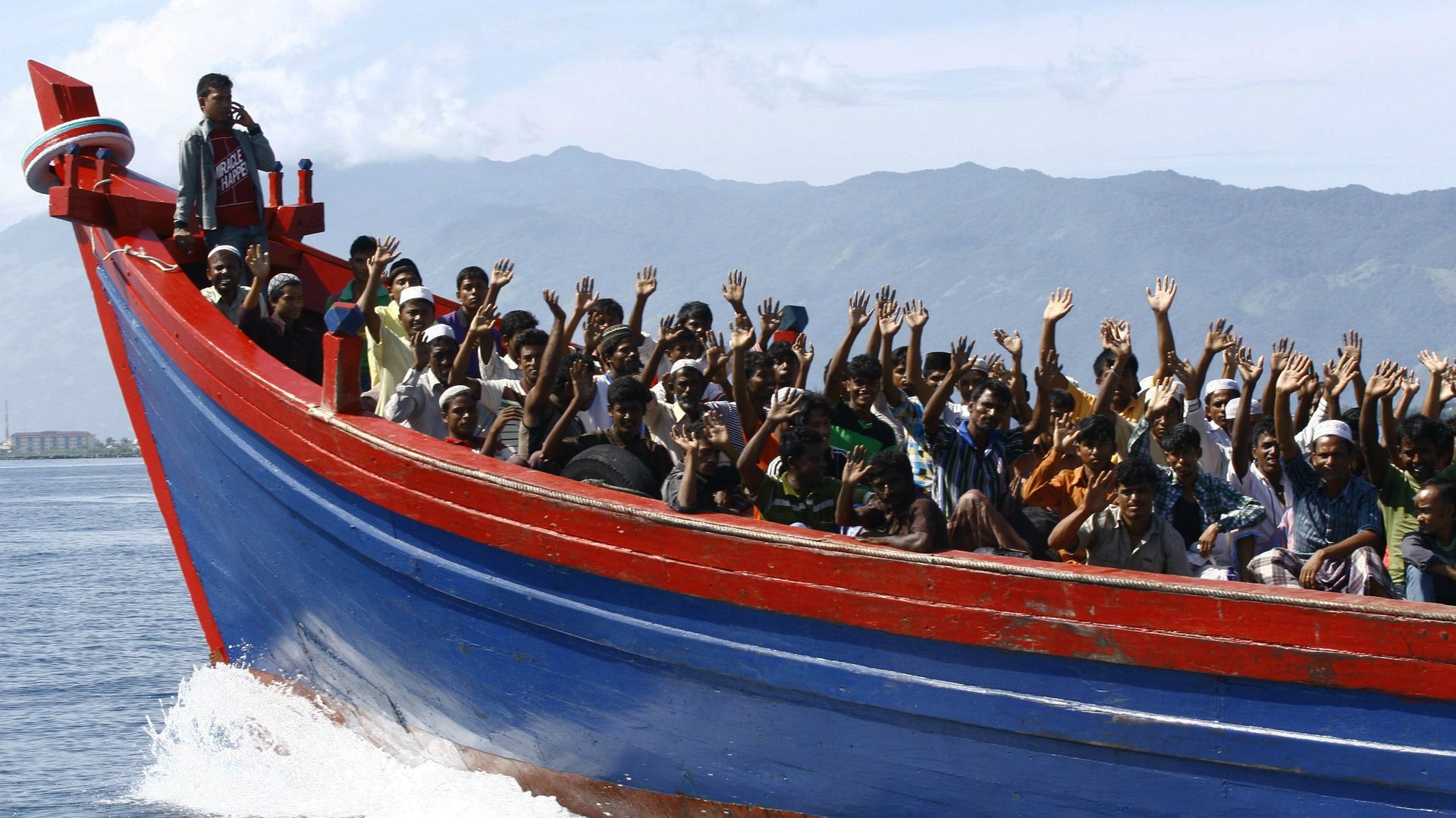Refugees, the most enterprising migrants in Australia
The conventional wisdom is that refugees are a burden on the country they end up in. They are usually unskilled and have little or no money, the thinking goes, so they must be supported by the limited resources and generosity of the better-off. Not exactly.


The conventional wisdom is that refugees are a burden on the country they end up in. They are usually unskilled and have little or no money, the thinking goes, so they must be supported by the limited resources and generosity of the better-off. Not exactly.
New research from the Australian Bureau of Statistics (ABS), released last week, supports a different line of reasoning. It shows that refugees—people who have proven resilient enough to survive war, famine, and other inconceivable tragedies—are perhaps the most entrepreneurial of all migrants to the country.
“Humanitarian migrants,” or refugees, the data show, make more of their money from their “own unincorporated businesses” than those that go to Australia on skilled-worker or family visas. Such a business might be a mom-and-pop store, an early-stage startup, or a small, independent company.
Refugees make almost 10% of their income this way, compared to just 4.3% for skilled migrants. This is true even though Australia has a relatively meritocratic visa that allows skilled workers to be self-employed even without first landing a job at a company in the country.
The real economic benefit of refugees comes after an initial adjustment to life in a country where they may not speak the language or have the right skills for the economy. While refugees have higher unemployment numbers than other migrants in Australia, the longer they stay in the country the more money they make from their own enterprises.
Humanitarian migrants “reported a higher proportion of income from their own unincorporated businesses, and this income increased sharply after five years of residency,” the ABS said in a press release. After the five-year mark, refugees in Australia go from making less than 5% of their income from their own small businesses to over 15% in years nine, 10, and beyond.
The potential economic boost refugees bring is getting more attention. German companies are asking the government to make it easier to hire them, citing a growing labor shortage in the country and the fact that refugees are not necessarily unskilled. A 2012 report (pdf, p. 3) on the impact of refugees in Cleveland, Ohio, by Chmura Economics and Analytics, found that, ”in advanced economies, once refugees have adjusted to their new life after resettlement, they can provide substantial contributions to the workforce and economic development in the long run at the regional level.” The report added, “refugees placed in the Cleveland area typically find employment within five months of their arrival in the country despite the fact that many lack English proficiency.”
This is not to say that refugees will be a net benefit right away. There will be an initial period of strain on hospitals and other services at the expense of the host country. But evidence that refugees quickly become contributing members of the economy should tip the balance of the cost-benefit analyses governments consider when deciding whether to take them in.
Regardless, the current setup of putting refugees in camps far away is not sustainable: Senior figures at the UN told the Guardian that its humanitarian agencies are on the verge of bankruptcy due to refugee crises.
Most rich countries remain reluctant to increase the number of refugees they accept. They only agreed to bring in more from Syria after the release of tragic photographs—showing a young boy’s lifeless body on a Turkish beach—set off a global reminder that the country’s four-year civil war has led four million people to flee their home country in search of asylum.